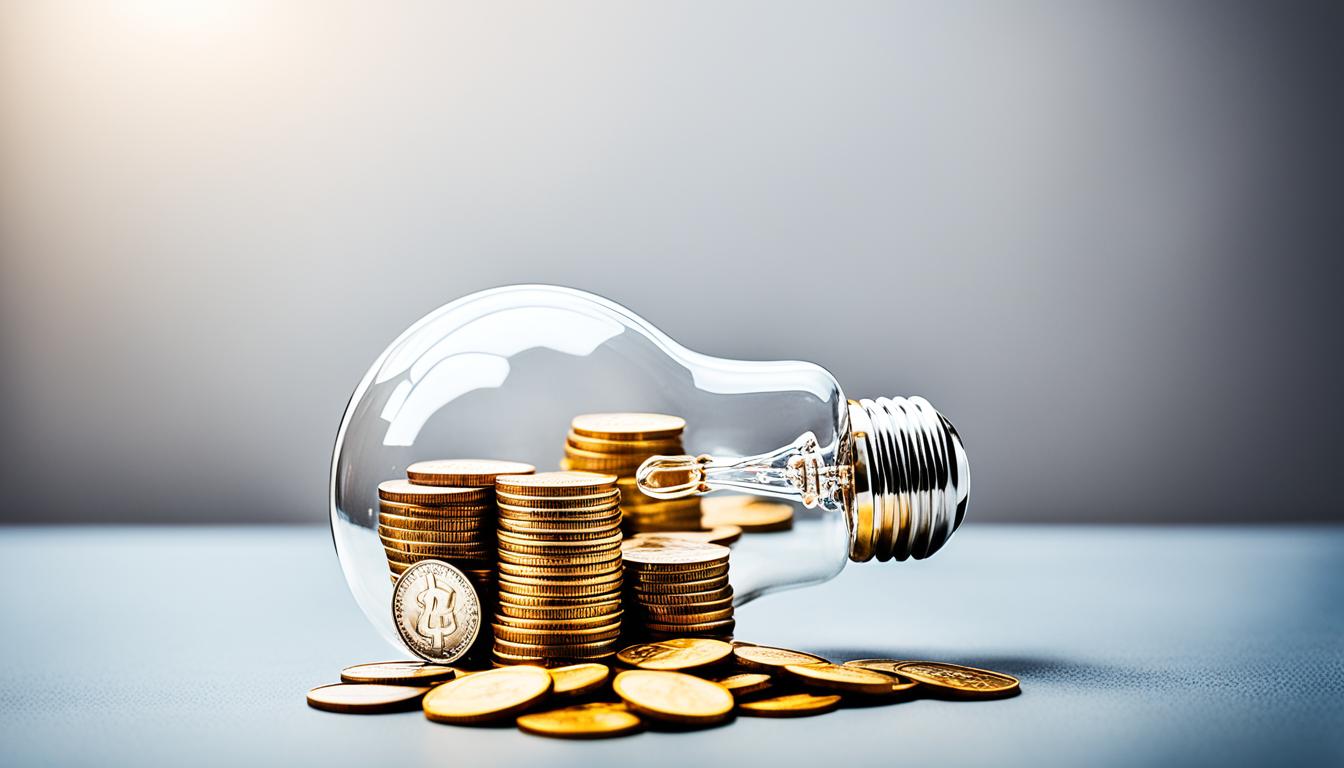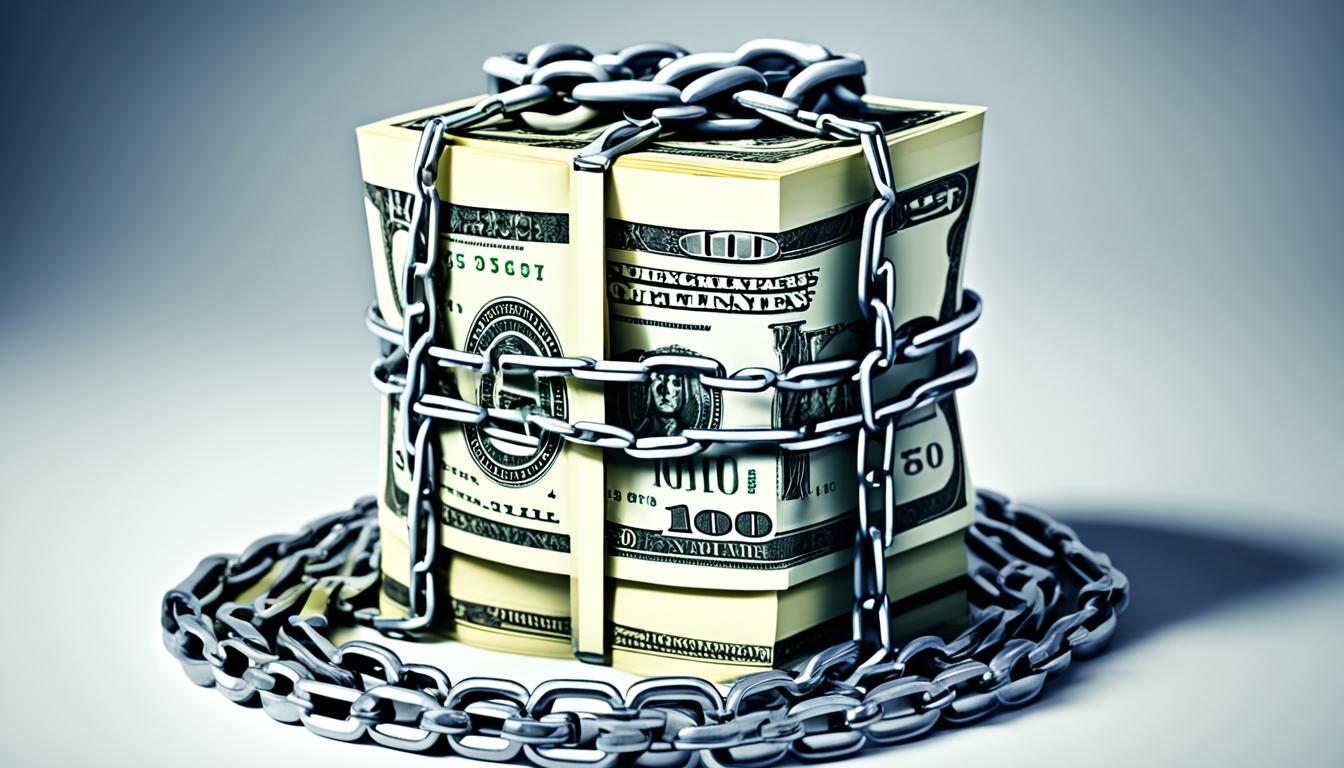Emergency Loans: In today’s world, unexpected bills can really stress us out. A study by Bank rate in 2023 found that 57% of Americans are unable to cover a $1,000 surprise. As the cost of living goes up, their savings for emergencies are dropping. That’s why emergency loans provide a vital way to get quick cash for sudden needs like medical bills, fixing your car, or losing income.
These loans don’t need any collateral. Instead, they look closely at your financial situation. They check your credit score, income, and how much you already owe to decide if they will lend to you and the interest rates. Emergency loans are paid back in regular, fixed amounts over time, usually 2 to 7 years. When you pay on time, it can help your credit score. But, if you miss payments, your credit can be hurt.
Key Takeaways
- Emergency loans can help with sudden, unforeseen costs.
- They are not backed by collateral, requiring a thorough examination of the borrower’s finances.
- These loans are to be repaid over time, in consistent monthly installments.
- Making payments on schedule can boost your credit score.
- It’s essential to choose wisely and pick the loan that you can afford based on your budget.
What Are Emergency Loans?
Emergency loans help cover sudden, urgent costs. They are a form of personal loan. When you apply, the lender looks at your financial situation. This includes your credit score and income to decide if you can get a loan and at what interest rates. The money is given as a lump sum, and you pay it back in even amounts over a set number of months, usually between 2 to 7 years. This helps you budget because you know exactly how much to pay each month. When you repay on time, it boosts your credit history. But, if you miss payments, it can hurt your credit history.
Also Read : Business Loans For Startups: What Are The Best Options Available?
Definition of Emergency Loans
Emergency loans are designed for sudden money needs. They are a type of personal loan. Lenders don’t require you to offer something valuable to get this loan. They mainly check your financial status instead.
Types of Emergency Loans
There are different types of emergency loans. They can be traditional personal loans, installment loans, or unsecured loans. The exact amount you can borrow, how you have to pay it back, and the conditions to qualify depend on many factors. These include the lender’s policies and your financial health.
Emergency Loan Rates, Fees, and Terms
Consider the interest rates, fees, and how you pay back an emergency loan. These loans can have an annual rate between 6% and 36%. The amount you borrow, your credit score, and how you’ll pay it back affect this rate. You might borrow from $1,000 to $100,000 and have to pay it back over 2 to 7 years.
Also Read : Secured Loan: What Are The Steps To Apply?
Typical Interest Rates for Emergency Loans
How much you pay in interest is connected to your credit history. People with great credit scores get lower rates (APRs). Those with not-so-great scores pay higher rates. Lenders set rules for the least credit score and the most debt you can have to get a loan.
Common Fees Associated with Emergency Loans
Emergency loans can have extra fees too, like one to start the loan called origination fee. It’s usually between 1% and 8% of the loan. When you get an emergency loan, make sure to check the agreement for all the fees and costs.
| Emergency Loan Feature | Typical Range |
|---|---|
| Annual Percentage Rate (APR) | 6% to 36% |
| Loan Amount | $1,000 to $100,000 |
| Repayment Terms | 2 to 7 years |
| Origination Fee | 1% to 8% of loan amount |
Choosing the Right Emergency Loan

When picking an emergency loan, it’s smart to look at a few things. You should think about the monthly payments you can handle. Also, compare how much interest different loans will cost you. Don’t forget to check for extra fees too.
Also Read : Home Loan: What Are The Best Interest Rates Available?
Calculating Affordable Monthly Payments
Use a personal loan calculator to find out what you’ll pay each month. Think about how much the emergency loan will be. Also, look at the APR and when you’ll need to pay it back. This helps make sure you don’t overextend your budget.
Comparing Interest Costs
Looking at the interest cost of various emergency loan options is key. Different lenders might have different APRs. This can change how much interest you pay. Try to find a loan with a low interest cost that meets your needs.
Checking for Additional Fees
Know more than just the interest rate. Be sure to check what extra fees or origination fees are. These can make the loan more expensive. It’s important to think about these fees when deciding.
Also Read : How Can I Prepare For The Medical School Entrance Exam?
How to Get an Emergency Loan
If you need quick cash, an emergency loan might be your answer. To boost your approval odds, here’s what to do:
Checking Your Credit Score
Start by checking your credit score and getting your credit report. You can do this through major credit bureaus. Knowing your financial status helps spot where you can do better.
Determining Your Affordability
Look at your monthly budget closely. Figure out what you can actually pay back every month. Your income, current debts, and necessary costs should all be factored in to see if an emergency loan is doable.
Pre-qualifying and Comparing Offers
Some lenders let you pre-qualify for a loan without hurting your credit score. Use this chance to look at various loan offers, rates, and payback conditions. It helps in finding the best deal before you formally apply.
Doing these steps can up your chances of getting an emergency loan that meets your financial needs. It also helps match it with your budget and credit plans.
Also Read : What Are The Best Medical Services For Mental Health?
Tips for Getting Emergency Loans with Bad Credit

Even with a low credit score, there are ways that you might get an emergency loan. You could have someone with a better credit score help you, use something valuable as security, or show that you earn money consistently.
Adding a Co-signer or Co-borrower
If your credit score is low, think about adding someone to your loan who has a better score. This makes the lender see you as less risky, which might lead to loan approval. It could also reduce your interest rate.
Providing Collateral
Using valuable items like your car or home as loan security can make lenders more willing to give you a loan. They see it as making the loan less risky for them. Doing this might make it easier for you to get a loan. It could even mean you pay less in interest.
Demonstrating Income Streams
Lenders want to know you can pay back the loan. Show them you have a steady income. This includes your job, any extra work you do, or government help. It could make them more likely to approve your loan, even with bad credit.
Where to Get Emergency Loans
Finding funds for sudden bills is key. When looking for an emergency loan, check different options. Pick what fits your money situation best.
Online Lenders
Online lenders are a favorite for fast emergency loans. They make applying easy and offer quick funding speed. Interest rates, called APRs, vary from 6% to 36%. But, they may charge origination fees. People with great credit get good deals. Yet, those with weaker credit might pay more or have a hard time getting the loan.
Banks
Banks offer emergency loans too. Their process might be harder than online. They have more rules for credit and income. But, for those who qualify, they give better rates and fees. It might take a few days to get the money.
Credit Unions
Credit unions are great for getting emergency loans. They tend to be more flexible. They might help you even if your credit isn’t perfect. What’s more, they have good APRs and fees. This makes them a solid choice for many people.
Best Uses for Emergency Loans
Emergency loans help when sudden expenses pop up. They work well for things like:
- Medical bills – Emergency trips to the hospital or sudden medicine needs are covered with these loans. They make sure you can get the care you need, without money worries.
- Home repairs – A leaky roof or a busted water heater can surprise you. These loans give you the cash to fix issues and keep your home in top shape.
- Car repairs – When your car breaks down, these loans help you avoid buses or cabs. They get you back driving quickly.
- Loss of income – A lost job or unexpected sickness can hit your wallet hard. An emergency loan helps pay the bills till you get back to work.
- Unexpected expenses – Unexpected costs, like funerals or urgent travel, can come out of nowhere. An emergency loan saves the day in such times.
Before getting an emergency loan, think about your money situation and why you need it. This way, it can really help you face surprises and stay on track with your money.
Other Types of Emergency Loans
Besides the usual personal loans, there are more emergency loans to consider. But, view these choices as your last option. They often have high-interest rates and unfair lending practices. This makes them not the right pick for most people.
No-Credit-Check Installment Loans
No-credit-check installment loans offer fast money but at a cost. They come with higher rates and fees than regular loans. They’re mainly for those with bad credit or few choices, which makes them risky.
Pawn Loans
Pawn loans let you put up items like jewelry for a loan. They’re quick to get but have high rates. If you don’t repay, you lose the item you put up.
Car Title Loans
Car title loans use your car as collateral. They have very high rates and you could lose your car. They are a last resort for getting money in an emergency.
Payday Loans
Payday loans are loans till your next payday. They are very costly, with high APRs above 400%. They can get you stuck in debt and are a bad choice for loans.
Emergency Loan Alternatives

When you need money fast, emergency loans seem helpful. But, there are better options to think about first. Before getting a loan with high interest, consider these other choices. They could be cheaper and more flexible, especially in tough times.
Local Financial Assistance Programs
Communities and groups often have help for those struggling. You could get emergency grants or food from a local charity. This can be a better choice than a loan sometimes. It could cost you less or even be free. Plus, the process may be quicker and easier.
Friend or Family Loan
Getting money from someone you know might be better than a loan. They could give you a low-interest or free loan. Plus, they might not check your Credit. But, be careful not to hurt your relationship. Make sure you pay them back how and when you agreed.
| Emergency Loan Alternatives | Pros | Cons |
|---|---|---|
| Local Financial Assistance Programs |
|
|
| Friend or Family Loan |
|
|
Finding other ways to get money in an emergency can be smart. It might save you from loans with high rates. Look at all your options. Choose what’s best for your money now and in the future.
Also Read: From Debt To Delight: Your Journey Through Student Loan Repayment Choices
Conclusion
Emergency loans offer a vital help to people dealing with sudden costs. These could be medical bills, fixing their car, or sudden loss of income. It is crucial for borrowers to think hard about which emergency loan is best for them. They should pick one that’s not too expensive and suits their financial situation well.
People looking for emergency loans should work on saving up. This is called an emergency fund and it’s to help with costs that come out of nowhere. They might also want to check out what local financial assistance programs offer. Or, think about asking help from friends or family. Often, this can mean paying back the loan at a lower interest rate. Choosing these options can keep their credit score from getting hit too hard.
Emergency loans are indeed helpful in difficult times. But, they should only be used as a last choice. It’s important for people to look at all their options and make a good budgeting plan. This way, they can deal with money issues and come out on the other side stronger.
FAQs
Q: What are emergency loans?
A: Emergency loans are short-term loans designed to provide quick financial assistance in situations where you need funds urgently, such as unexpected expenses or financial emergencies.
Q: How can I apply for an emergency loan?
A: You can apply for an emergency loan online through various loan lenders’ websites. The application process usually involves filling out a form and providing information about your financial situation.
Q: Can I get emergency loans for bad credit?
A: Yes, there are emergency loans available for individuals with bad credit. Some lenders specialize in offering loans to those with less-than-perfect credit scores.
Q: What are the best emergency loans available?
A: The best emergency loans are those that offer favorable terms such as low interest rates, flexible repayment options, and quick approval processes. It’s recommended to compare emergency loans from different lenders to find the most suitable option for your needs.
Q: How do emergency loans affect your credit score?
A: Taking out an emergency loan can impact your credit score depending on how you manage the loan. Making timely repayments can help improve your credit score, while defaulting on payments can negatively affect it.
Q: When should I use an emergency loan?
A: You can use an emergency loan to cover unexpected expenses, medical bills, car repairs, or other urgent financial needs. It’s important to borrow responsibly and only take out a loan when necessary.
Q: What are the requirements to qualify for an emergency loan?
A: The requirements to qualify for an emergency loan vary among lenders but may include having a minimum credit score, stable income, and fulfilling other eligibility criteria set by the lender.
